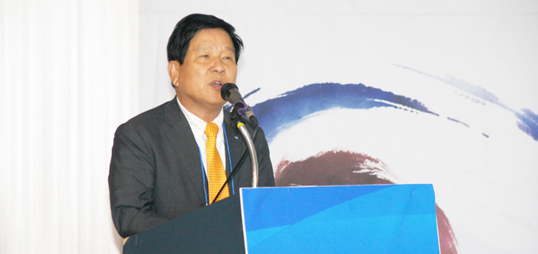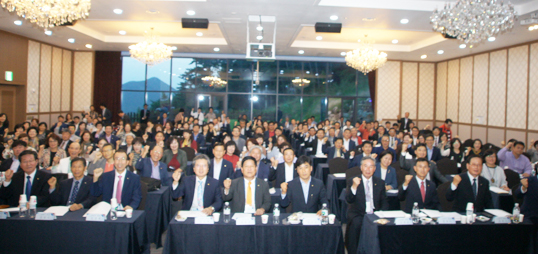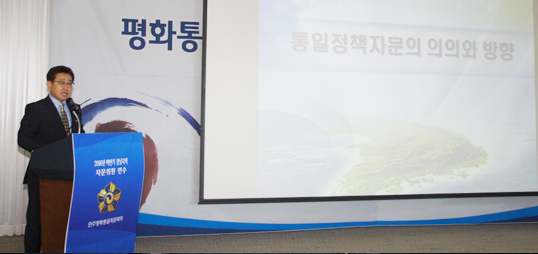The NUAC Gyeongnam Provincial Assembly Council Member Training was held on September 22-23 at Dongwon Resort in Tongyeong. In this training, the first for this year held for council members of Gyeongnam Assembly, various programs to strengthen the capability for unification were held.
First, Choi Chung-Kyung, vice-chairperson of the Gyeongnam Assembly, gave the opening remarks, noting the special meaning of the training held for the Gyeongnam region under the serious situation of North Korea’s nuclear issue. He expressed hope that it becomes an opportunity to enhance the capability for regional unification through active participation and communication.
For the lecture part, “Change in international situation and direction of diplomatic/security policy” (Lee Jung-tae, Professor at Kyungpook National University) and “Direction of our policy regarding North Korea’s nuclear threat” (Lee Tae-yoon, Professor at Korea National Defense University) were conducted in sequence, serving as a good opportunity to understand systematically the ever-changing situation of Northeast Asia and North Korea’s nuclear issue.
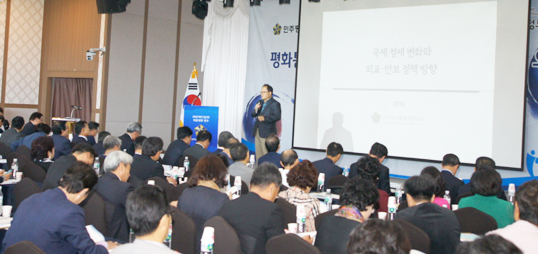
Professor Lee Jung-tae
In particular, the use of the “2016 Council Member Training Book,” which was newly revised/supplemented by the Secretariat of NUAC, made the lecture more fruitful.
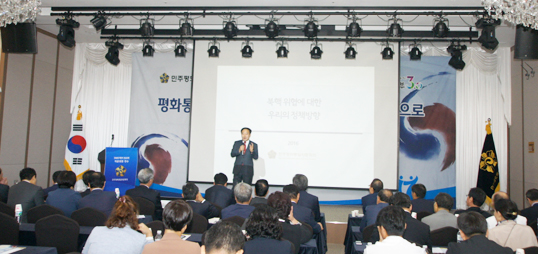
Professor Lee Tae-yoon
In addition, the “Unification Talk Concert with North Korean Refugees” by Professor Kang Dong-wan of Dongah University was a good time to understand clearly the reality of North Korea.
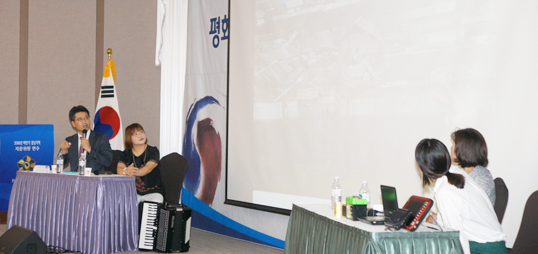
Talk Concert
On the second day of training, various participatory programs such as sharing of “unification tetrastich making” with active willingness toward unification and “example of unification movement in our daily lives” drew great response and interest among the council members.
According to Koh Young-hoon, chief of the Training Department of Secretariat of the NUAC, the event went well thanks to the active interest of the Gyeongnam Assembly council members. They will strive to seek substantiality of the succeeding trainings by actively reflecting the ideas of council members in the future.


